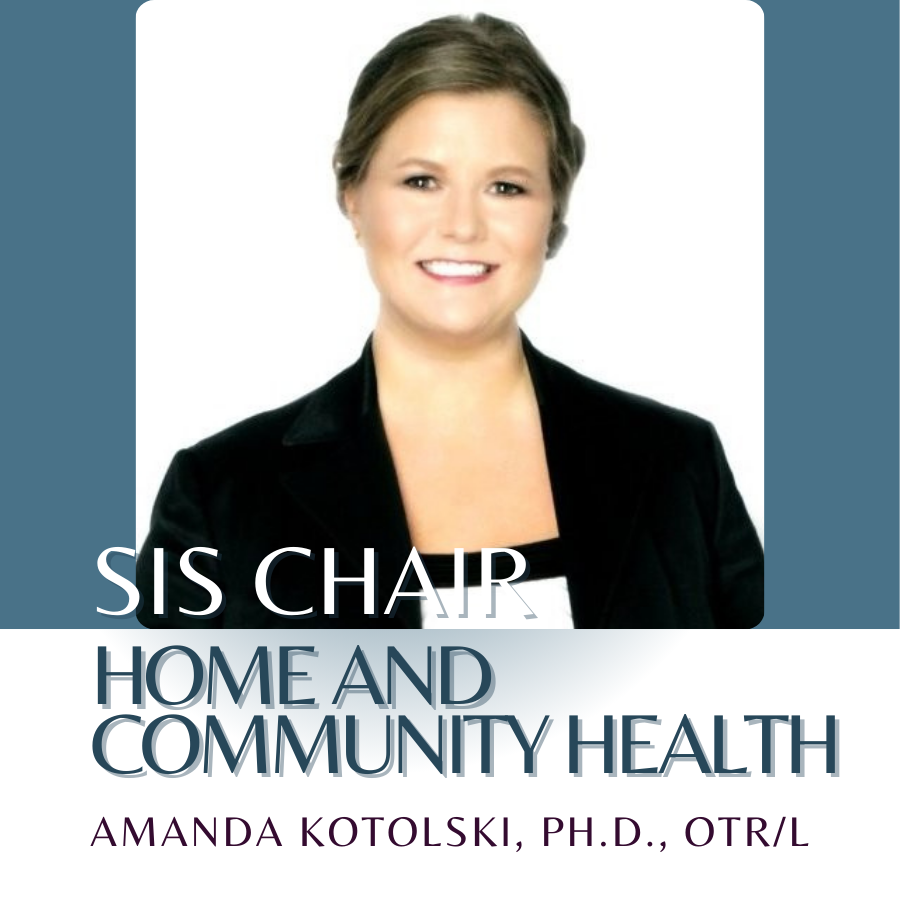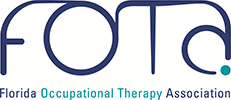Home and community health therapy services post Public Health Emergency (PHE)
 Home and community health therapy services post Public Health Emergency (PHE)
Home and community health therapy services post Public Health Emergency (PHE)
Amanda Kotolski, Ph.D., OTR/L
After renewal thirteen times, the Public Health Emergency (PHE) regarding COVID-19 ended in May 2023. With the end of PHE, policies that have affected daily occupational therapy practice will be once again changing depending on state and federal laws and private payer policies. This may include ending some of the waivers and flexibilities that were put in place to lessen the impact of COVID-19 environmental, social, emotional, and physical restrictions and continue patient access to services in the safest way possible. There are new changes on the horizon such as extension of telehealth, adult home health cases, caregiver training codes, home health aides and remote therapeutic monitoring.
In the Omnibus Reconciliation Act, Congress extended Medicare telehealth waivers through the end of 2024. This extension will occur regardless of the status of the ongoing public health emergency (PHE) and will allow occupational practitioners (OTPs) to provide services via telehealth to Medicare beneficiaries for all of 2023 and 2024 (Sandhu, 2023). OTPs have reported that telehealth has reduced cancellations and postponements while making it easier to connect with beneficiary caregivers. Of critical importance, telehealth “home tours” are a specific OT telehealth benefit that cannot be duplicated in a facility/office setting. OTPs report that telehealth has enabled in-home “video tours” to identify home safety issues that would never be identified by the patient in a facility/office setting. This can be crucial in preventing falls, addressing functional decline, and avoiding costly emergency room visits and hospital admissions which can reduce the cost of care (American Occupational Therapy Association [AOTA], 2023). The Department of Health and Human Services relaxed the enforcement of HIPPA compliant platforms during PHE however HIPPA enforcement resumed as of May 2023.
CMS updated Section 484.55 of the home health conditions of participation to allow an occupational therapist to conduct the initial assessment visit and complete the comprehensive assessment during PHE. Initially, OT was able to perform the initial and comprehensive assessments for all home health patients receiving therapy (as long as nursing, PT, or SLP is on the order in order to establish eligibility) (Bopp, 2023). Since the end of PHE, OT may only perform the initial and comprehensive assessments for home health therapy-only patients (Sandhu, 2023). In addition, for Medicare Part A home health agency HH care, telehealth visits do not count for purposes of eligibility or payment, but CMS is using G codes to collect data on the use of telecommunications technology during a 30-day home health period of care on home health claims. This data collection was voluntary beginning January 1, 2023; however, it is now mandatory beginning on July 1, 2023.
Previously when the patient was not present, however, caregiver training was not able to be captured in coding for reimbursement because most CPT codes commonly used by OTPs are defined as 1:1 service that require direct patient interaction. While patient engagement in caregiver training is best practice in most scenarios, there are situations where the patient’s presence at the caregiver training may impede caregiver skill acquisition, negatively impact the practitioner-patient relationship, or the patient’s medical condition may be such that they are physically or cognitively unable to participate in the caregiver session. Effective January 1, 2024, these new CPT codes enable OTPs to capture and bill for planned and coordinated training sessions provided to one or more caregivers for an individual patient or groups of caregivers for several patients, without the patient(s) present, when the focus of the caregiver training relates directly to the patient goals and outcomes (Karr, 2023a). AOTA is still working on guidelines for implementation with insurances and CMS has yet to determine reimbursement.
-
9X015* Caregiver training in strategies and techniques to facilitate the patient's functional performance in the home or community (e.g., activities of daily living ADLs], instrumental ADLs IADLs], transfers, mobility, communication, swallowing, feeding, problem-solving, safety practices) (without the patient present), face-to-face; initial 30 minutes.
-
9X016* each additional 15 minutes List separately in addition to code for primary service) (Use 9X016 in conjunction with 9X015)
-
9X017* Group caregiver training in strategies and techniques to facilitate the patient's functional performance in the home or community (e.g., activities of daily living ADLs], instrumental ADLs IADLs], transfers, mobility, communication, swallowing, feeding, problem-solving, safety practices) (without the patient present), face-to-face with multiple sets of caregivers.
As of June 2023, family members can now be paid as caregivers to medically fragile children (under Medicaid) under Florida’s HB 391. It is estimated that family caregivers in Florida forgo $17.6 billion in earnings (Long, 2023). Family members need to complete home health aide training (85 hours), complete 16 hours of clinical training, pass background screening and be employed with the home health agency. However, this may ultimately impact Medicaid eligibility for the child due to increased parent income when time for Medicaid renewal.
Remote therapeutic monitoring, or RTM, is a relatively new technology that enables an occupational therapy practitioner OTP to monitor a patient’s therapeutic response to treatment and provide more timely adjustments to the therapy plan of care between treatment sessions (Sharma, 2023). These RTM codes describe the monitoring and review of patient health data using FDA-approved medical devices, including digital platforms and applications classified as “software as a medical device” SaMD, which collect non-physiological data such as musculoskeletal or respiratory status, adherence to home exercise programs, pain levels pre- and post-exercise, etc. (Karr, 2023b). There are 3 codes for initial device set-up:
-
98975: Remote therapeutic monitoring (e.g., therapy adherence, therapy response); initial setup and patient education on use of equipment
-
98976: Device(s) supply with scheduled (e.g., daily) recording(s) and/or programmed alert(s) transmission to monitor respiratory system, each 30 days
-
98977: Device(s) supply with scheduled (e.g., daily) recording(s) and/or programmed alert(s) transmission to monitor musculoskeletal system, each 30 days
In addition, there are two RTM treatment management codes to apply to time spent by a qualified healthcare professional analyzing and interpreting the data collected from the device and communicating with the patient.
-
98980: Remote therapeutic monitoring treatment management services, physician, or other qualified healthcare professional time in a calendar month requiring at least one interactive communication with the patient or caregiver during the calendar month; first 20 minutes.
-
98981: Remote therapeutic monitoring treatment management services, physician, or other qualified healthcare professional time in a calendar month requiring at least one interactive communication with the patient or caregiver during the calendar month; each additional 20 minutes (Karr, 2023b).
Please like our Facebook HCH SIS page: www.facebook.com/FOTAHomeandCommunityHealthSIS/
References
American Occupational Therapy Association [AOTA]. (2023). Support the Medicare Home Health Accessibility Act. https://www.aota.org/-/media/corporate/files/advocacy/federal/fact-sheets/medicarehomehealthaccessibilityactfactsheet2023.pdf
Bopp, A. (2023, May 23). AOTA Fact Sheet on OT’s value in home health as a Medicare qualifying service. American Occupational Therapy Association. https://www.aota.org/advocacy/advocacy-news/2023/ot-as-a-qualifying-service-in-medicare-home-health-fact-sheet
Karr, K. (2023a, July 14). New codes support reimbursement for caregivers. American Occupational Therapy Association. https://www.aota.org/advocacy/advocacy-news/2023/new-codes-support-reimbursement-for-caregiver-training
Karr, K. (2023b, May 9). Remote therapeutic monitoring. American Occupational Therapy Association. https://www.aota.org/practice/practice-essentials/coding/remote-therapeutic-monitoring
Long, A. (2023, June 22). Your access to health care in Florida is changing. Here’s how. Tampa Bay Times. https://www.tampabay.com/news/health/2023/06/22/florida-health-insurance-kidcare-glucose-diabetes-medicaid-sickle-cell/
Sandhu, S. (2023, May 8). What does the end of the PHE mean for occupational therapy? American Occupational Therapy Association. https://www.aota.org/advocacy/issues/post-acute-care-advocacy/what-does-the-end-of-the-phe-mean-for-occupational-therapy
Sharma, P. (2023, February 21). An overview of remote therapeutic monitoring (RTM). Forbes.
https://www.forbes.com/sites/forbestechcouncil/2023/02/21/an-overview-of-remote-therapeutic-monitoring-rtm/?sh=3cf90c5950cf
